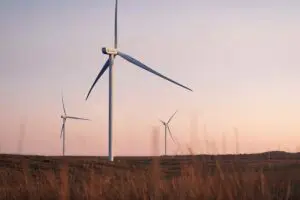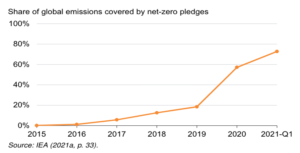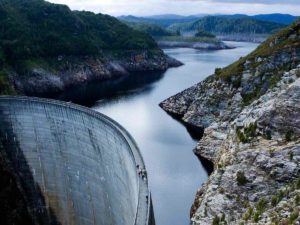None of Australia’s 20 largest banks have established targets to decarbonise their investment portfolios by 2050, and less than half have targets to achieve zero net emissions from their operations, a new assessment published by ClimateWorks Australia has found.
However, almost all of Australia’s top 20 banks have begun to incorporate their contributions to climate change in their business planning, with most expected to commit to decarbonising their operations in the near future.
The findings have been detailed in the latest report prepared by ClimateWorks Australia’s Net Zero Momentum Tracker initiative, with the Monash Sustainable Development Institute, and follows an earlier assessment of the property sector, that found less than half of Australia’s largest property companies have zero emissions targets.
“Many of the banks have set net zero emissions targets for their operations and are achieving these commitments through energy efficiency initiatives, shifting to 100 per cent renewable energy and offsetting their emissions through investments in reforestation and low-carbon energy projects,” ClimateWorks Australia CEO Anna Skarbeck said.
“While none of the banks have a comprehensive net zero emissions target that includes both operational and portfolio emissions, one-quarter including Westpac from the big four, are preparing to make this commitment, possibly as early as next year.”
ClimateWorks sees the banking sector as playing a crucial role in driving the decarbonisation of the wider Australian economy, with the 20 largest banks controlling a combined A$13.2 trillion in assets an having an enormous influence over where investment capital in Australia is directed.
While the assessment released by ClimateWorks Australia found that many banks are yet to set emissions reduction targets for their operations and their portfolios, ClimateWorks Australia was still positive, finding that 85 per cent of the banks had taken steps to reduce the emissions footprint of their portfolios.
ClimateWorks noted that reasonable progress had been made by banks to reduce the emissions of banking operations, including investing in energy efficiency and renewable energy projects for offices and branches. However, given the scale of funds managed by the banks, the decarbonisation of their investment portfolios has a substantially larger potential to drive the decarbonisation of the Australian economy.

ClimateWorks found that many of Australia’s largest banks are actively reviewing their investments in the coal sector, and have either already eliminated their exposure to the sector, or have plans in place to exit the sector over the next decade.
The assessment found that a quarter of the banks had committed to the Science Based Targets initiative, requiring the banks to set targets consistent with limiting warming to well below 2 degrees. Additionally, around a third of the banks had made commitments to achieving zero net emission by 2050 for some of their investment activities.
Two banks, Greater Bank Limited and IMB Limited, were singled out by ClimateWorks for not having made any commitments with regards to reducing emissions.
“All of Australia’s big four banks still have fossil fuel investments, but have made a commitment to either reduce their exposure through restricting lending or in the case of the Commonwealth Bank has indicated its willingness to exit the sector by 2030,” Skarbeck added.
“It’s critical that banks’ portfolio emissions – that is, from the activities that banks finance – are aligned with net zero emissions before 2050, so that the economy can be. That’s the Paris climate goal. As financial intermediaries, banks are key to Australia’s transition to a net zero emissions economy through their investment and lending portfolios.”
In some cases, ClimateWorks Australia found it difficult to assess the true level of exposure that some banks have to the fossil fuel sector, due to the limited level of disclosure from some banks about their holdings.
Several Australian banks have made commitments under the RE100 initiative, committing to purchase all of their electricity consumption from renewable sources. Bank Australia was the first to deliver on this commitment when it secured a PPA with the Crowlands wind farm and was followed soon after by Westpac, which secured a deal to purchase electricity from the Bomen solar farm.
Banks have come under increasing pressure from environmental groups to reduce their involvement with the fossil fuel industry, particularly advocating for banks to refuse to provide finance to new coal mines, including Adani’s Carmichael coal mine.
In most cases, banks have made commitments not to provide services to the Adani mine, but such campaigns, which may fall under the definition of a ‘secondary boycott’ will be targeted by draconian new laws flagged by prime minister Scott Morrison, who will seek to prevent environmental groups from targeting service providers through boycotts as a strategy to oppose coal projects.
ClimateWorks Australia plans to completed additional assessments of zero emissions commitments in the State and local government, retail, electricity, transport and superannuation sectors.










